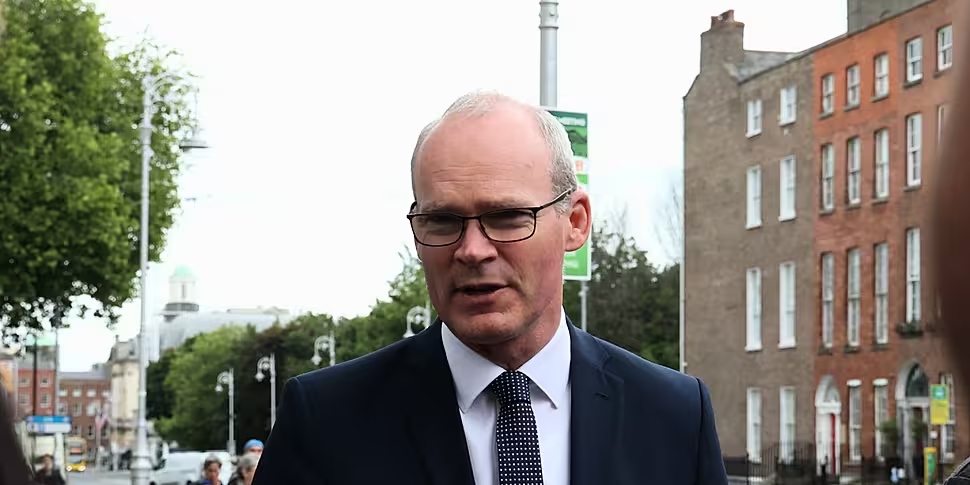The British Government is essentially telling the EU: ‘Give us what we want, or we’ll take it anyway,’ the Foreign Affairs Minister has warned.
On Newstalk Breakfast this morning Simon Coveney proposed legislation that would undermine the protocol was disappointing, reckless and illegal.
The Northern Ireland Protocol Bill, tabled in Westminster yesterday, would allow British ministers to set aside parts of the protocol whenever they see fit.
It also introduces major changes in four areas including customs and agri-food safety checks, regulation, subsidy controls and the role of the European Court of Justice (ECJ).
"Very disappointed"
Minister Coveney said the Irish Government is “very disappointed.”
“We think it is a reckless move,” he said. “We think, if this legislation takes effect, it will be illegal as well.
“Effectively what is happening here is the British government is empowering its ministers to disapply large elements of an international agreement which is international law.
“This is effectively signalling the British Government doesn’t seem to be committed to negotiation with the EU … instead it is sending the message to the EU and Ireland, either give us what we want, or we’re going to take it anyway.
“It is an extraordinary position for the British Government to take – particularly when they haven’t made any effort at negotiation since February 11th.”
"Negotiating tactic"
Minister Coveney said the move makes it more difficult for the EU to compromise in the future.
“If it’s a negotiating tactic, it is a very bad one because it makes compromise more difficult, not easier,” he said.
“If you are negotiating with someone and you say, give me what I want or I’m going to take it from you anyway, it certainly makes compromise more difficult.”
International law
Minister Coveney said the move marked a new low in British/Irish relations and would undermine the European response to Russia’s invasion of Ukraine.
“There is a real irony here, at a time when we are trying to hold Russia to account through international law, the British Government is looking to set aside international law in terms of its commitments that it signed up to and ratified itself,” he said.
“At a time when countries in Europe need to be working together in the face of Russian aggression, we are now spending our time working on an issue that the British Government has deliberately turned into a point of friction between the British government and the Irish government and the British Government and the EU – and of course, created even more polarised opinion in NI.”
Low point
He noted that 52 of the 90 elected MLAs in the North yesterday signed a letter urging the British Government not to table the legislation.
He said British/Irish relations are now at the lowest point of his career.
“Certainly, in my time, I haven’t seen relations in this place before,” he said.
“We have always managed to work together, to find ways forward, to provide stability to help parties in NI bridge their difficulties and so on.
“Unfortunately, what we have now is essentially a British gov setting aside that approach and commitment to partnership with the Irish Government.
“So, we are in uncharted waters and certainly my focus will be on trying to rebuild relationships but also being honest in terms of calling out the reckless nature of what the British Government is proposing.”
Brexit
The EU is now expected to resume its legal proceedings against the UK for breaches of the Brexit deal.
The European Commission is also warning that it will take "proportionate action" over yesterday's move from Westminster.









